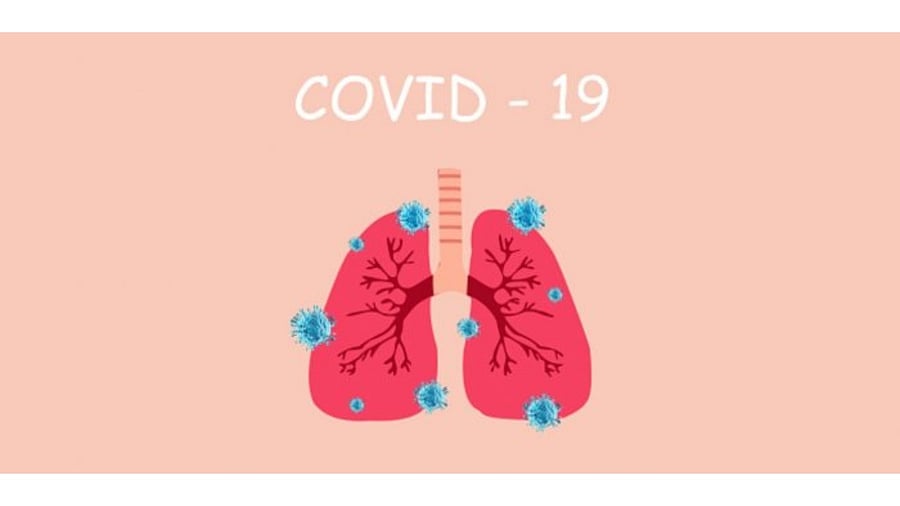
A healthy and active 78-year-old fully vaccinated man developed a serious case of pulmonary embolism, which doctors linked to the Covid-19 infection.
The case has caught veteran cardiologists off-guard as severe post-cardiac complications have been observed in limited numbers during the third wave.
Speaking as an independent expert, Dr C N Manjunath, director, Jayadeva Institute of Cardiovascular Science and Research, noted that while there were many serious cases of thrombosis (clot formation) in the brain and in the heart during the second wave, a few have been seen in the third wave.
“During the second wave, D-dimer tests showed that many people with mild to severe Covid-19 were developing signs of clot formation. This time around, however, the D-dimer values are in the normal limits,” he said. Consequently, the case of the 78-year-old created some surprise among doctors at BGS Gleneagles Global Hospital after the patient was brought with a complaint of giddiness.
An investigation found that he had suffered a submassive pulmonary embolism.
“His right ventricle in the heart was abnormally dilated — this is because of a clot in the pulmonary artery which meant that the heart had to pump against the obstruction, causing dilation,” explained Dr Gourishankar Reddy, head, medical and Covid ICU at the hospital.
Doctors said patients who usually suffer from pulmonary embolism are sedentary because of a debilitating health condition such as cancer or stroke. “In this case, the patient was fit and fine and was into yoga and walking,” Dr Reddy said.
According to the patient’s medical data, he had an episode of fever and myalgia between January 24 and 25. Despite these symptoms, he was not tested for Covid-19 because his oxygen saturation levels were above 95.
However, within a day of losing symptoms a week later, he had become giddy and suffered a fall. An SpO2 level check found his saturation levels at 88 per cent.
“We found that he was suffering from mild tachycardia (rapid heartbeat). A CT scan discovered that he had lung scarring typified by a Covid-19 infection,” Dr Reddy said. The clot was whittled down using a strong clot-dissolving agent.
“This case illustrates that even though Covid-19 case numbers are coming down, we are still seeing cases that are complicated,” he said.
There is no clarity over whether the person was infected with the Delta or Omicron variant.
Dr Manjunath said, “Testing for clot formation during the third wave found that a small percentage of Omicron cases have this problem. The incidence is not zero. Hence, you cannot rule out Omicron as a cause for pulmonary embolism,” he said.
The patient was vaccinated twice with Covaxin. The second dose was taken in May 2021.
Watch the latest DH Videos here:
